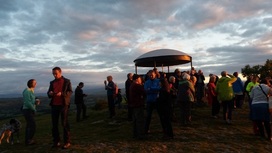 Sunrise at the Mushroom Shelter
Sunrise at the Mushroom Shelter On a mid-summer day in 1906 an excited group of children from Stramongate School set out from Kendal in the darkness, in the early hours of the morning, to watch the sunrise from the Scout Scar escarpment. A local policeman was puzzled to come upon them out so late, so early, walking through the town. Sunrise was the attraction, but the wonder of the morning was an ecstasy of skylarks in song- flight. Lark song enveloped them. Today, you have to listen to hear skylark singing here. Today, skylark numbers are falling rapidly. What can we do to save the skylark on Scout Scar, and everywhere? To save them for the children of the next generation, so their experience is no less rich than ours.
There was no Mushroom Shelter when those children came here in 1906 and the Great War was in the future. Impossible to know how many skylark they heard and the birds probably bred far more widely on Scout Scar.
When the Mushroom Shelter was refurbished there was an opportunity to raise awareness about this place, not simply to name the panorama of Lake District Fells as the toposcope does. The limestone escarpment is a dramatic landscape feature with stunning flora in spring and summer, with rarities for those who revel in rare species. Let's learn a little while we're here. Let's think about what we're seeing.
I’m interested to speak with Douglas Chalmers from Friends of the Lake District who tells me that National Park status is the highest environmental protection. It ensures a certain quality of development. It helps to keep farmers going, particularly small farmers. We stand looking toward sunrise, toward Bradleyfield Allotment where field walls need maintenance to protect habitat for ground-nesting birds. Repairing stone walls is expensive, he says. Yes, but how about this. Why not ask the Dry Stone Walling Association to fix walls where breach threatens wildlife and habitat. What often happens is that exhibitions of walling see a wall knocked down to be built up again. Combine demonstration with what is required on the ground.
Dawn Groundsell of Friends of the Lake District would like to review Cumbrian Contrasts for their forthcoming autumn magazine. So I give her a copy. I hope she and her little daughter will enjoy the song-flight of skylark, and the call of the cuckoo, here on Scout Scar in the future.
Skylark are singing from late February until the end of their breeding season in mid to late July. The elusive cuckoo can be heard from April. The latest I've heard cuckoo is 1 July.
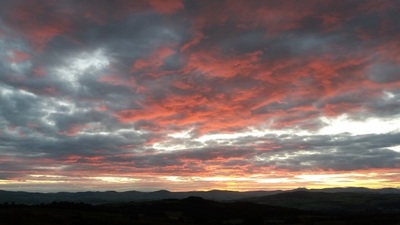
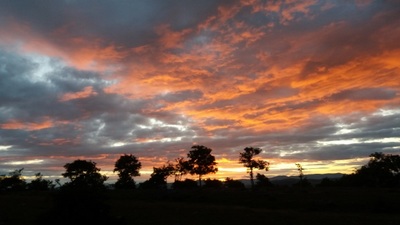
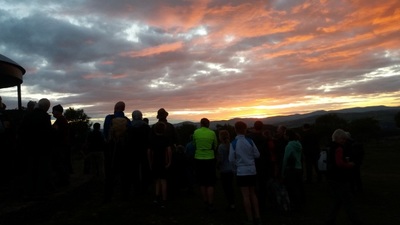
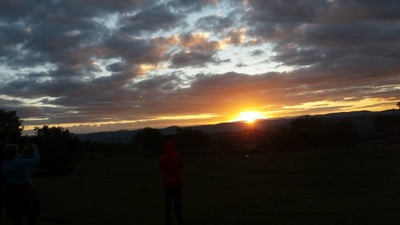
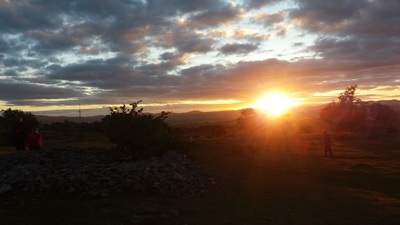
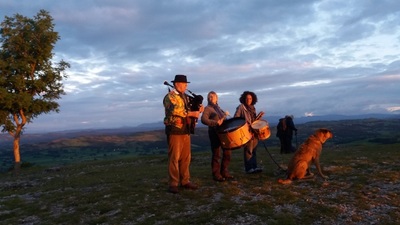
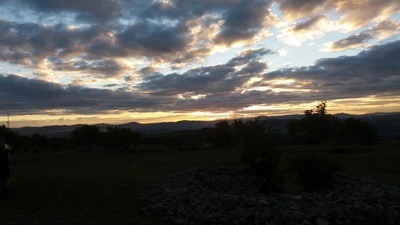
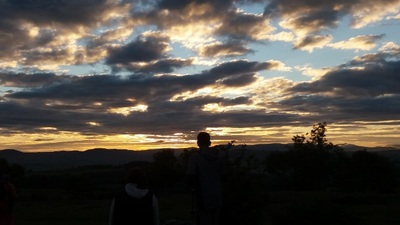
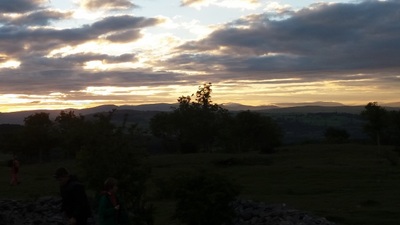
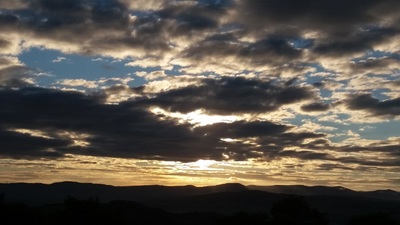
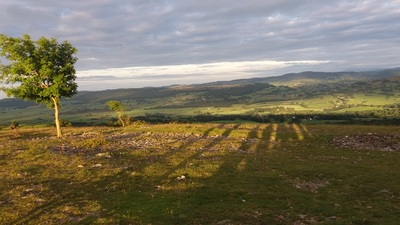
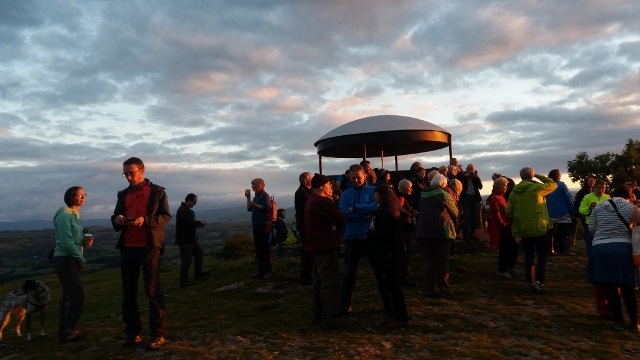
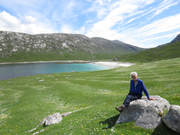
 RSS Feed
RSS Feed